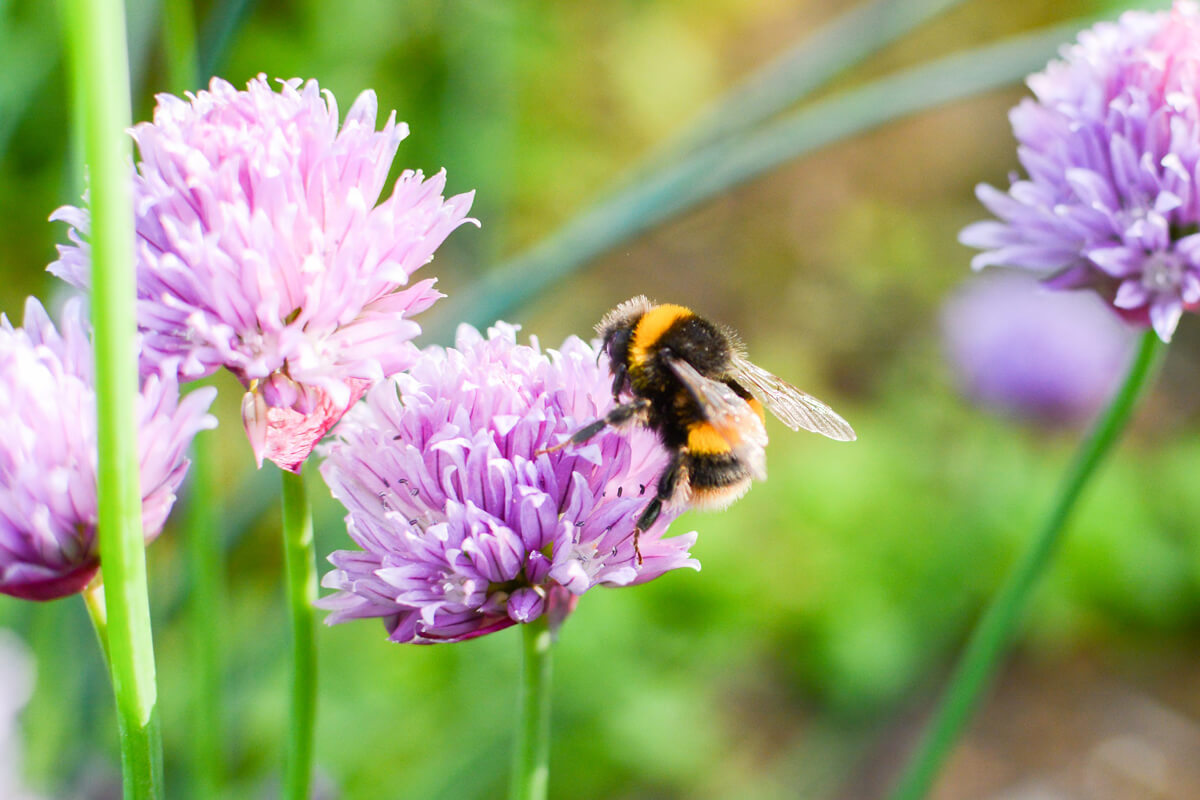Bees are vital to our ecosystems, acting as essential pollinators that support biodiversity and agricultural productivity. However, their stinging ability can pose risks, particularly to individuals with allergies.
To coexist peacefully with bees, adopting preventive measures to discourage their presence without harming them is beneficial. By leveraging natural repellents, we can create bee-free zones while preserving these crucial insects.
Effective Strategies for Bee Repulsion
Understanding bees’ behavior and preferences allows us to employ methods that naturally deter them, utilizing their acute olfactory senses to our advantage. Here’s how:
Safeguard Food and Beverages
-
Secure Consumables: Bees are drawn to the aroma of ripe fruits and sugary drinks. Ensuring food and beverages are covered or sealed, especially outdoors, can significantly reduce bee attractions.
Minimize Attraction
-
Reduce Sweet Scents: Bees are attracted to the sugary aroma of nectar, making them prone to investigating similar sweet smells from perfumes, lotions, and sunscreens. Opting for products with subtle or unscented formulations can help avoid drawing bees.
Alter Habitat to Discourage Bees
-
Modify the Environment: Limiting resources such as water and preferred floral types can make an area less appealing to bees, encouraging them to seek more hospitable environments.
Innovative Repellents
-
Utilize Vinegar & Spices: Vinegar’s strong odor can serve as a repellent, as can sprinkling cinnamon or cayenne pepper in areas where bees are unwelcome. However, it’s essential to apply these remedies judiciously to avoid harm to bees.
Block Entry Points
-
Seal Potential Nests: Prevent bees from establishing nests in undesired locations by sealing cracks and openings around your home.
Natural Repellent Plants
Cultivate Bee-Repelling Flora: Certain plants emit odors that bees find off-putting. Surrounding your space with these can serve as a natural barrier:
-
Marigolds
-
Geraniums
-
Mint varieties
-
Eucalyptus
-
Thyme
-
Lemon balm
-
Pennyroyal
-
Neem
-
Clove
-
Garlic
-
Basil
-
Lavender

Essential Oils as Deterrents
-
Diffuse Bee-Averse Scents: Essential oils derived from the above plants can amplify the repelling effect when used in diffusers or applied around areas you wish to keep bee-free:
-
Lavender oil
-
Tea tree oil
-
Citronella oil
-
Lemon oil
-
Peppermint oil
-
Clove oil
-
Eucalyptus oil
-
Cinnamon oil
-
Cedarwood oil
-
The Importance of Bee Conservation
Despite the occasional inconvenience bees may present, their role in pollination is irreplaceable, supporting the survival of many plants and, by extension, the broader ecosystem.
Efforts to repel bees should aim for harmony, not harm, ensuring their vital work continues.
Professional Bee Management
In cases where bees pose a significant problem, consulting with bee removal experts is recommended. Professionals can safely relocate bees, ensuring both human safety and the preservation of bee populations.
Bee Repellent FAQs
-
How to Deter Bees? Employ a combination of the strategies mentioned above, focusing on altering scents, securing food sources, and modifying the habitat.
-
What Smells Do Bees Dislike? Bees are repelled by strong, pungent smells such as garlic, lavender, citronella, and mint, among others listed in the essential oils section.



